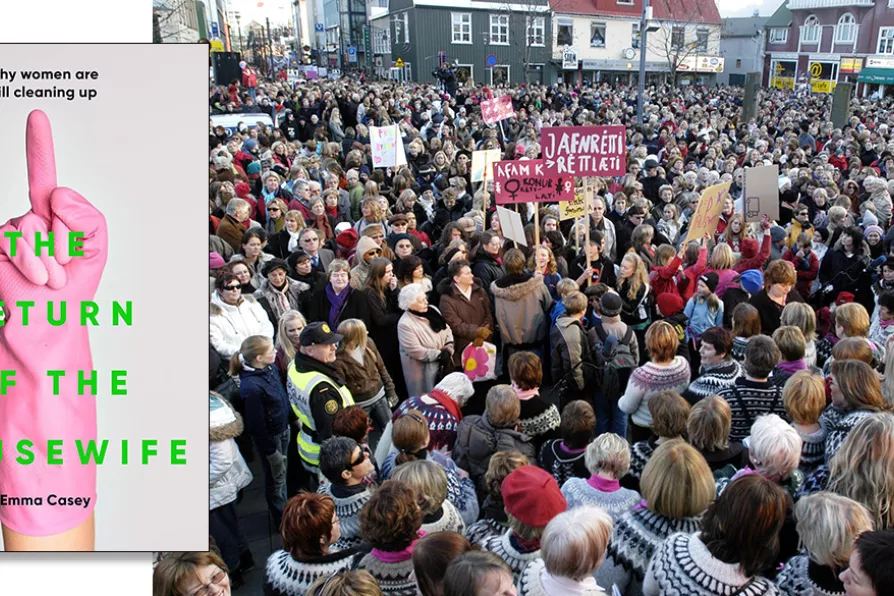The Bard stands with the Reformers of Peterloo, and their shared genius in teaching history with music and song
Solidarity in the housework place
SYLVIA HIKINS applauds a polemic against “cleanfluencers” and considers radical alternatives to current inequalities of housework

 INSPIRING EXAMPLE: Celebrating the women's strike in Reykjavik, 2006
[Johannes Jansson/CC]
INSPIRING EXAMPLE: Celebrating the women's strike in Reykjavik, 2006
[Johannes Jansson/CC]
The Return of the Housewife: Why Women are Still Cleaning Up
Emma Casey, Manchester University Press, £19.98
EMMA CASEY’s book, The Return of the Housewife, exposes yet another example of how social media is being used to misinform and manipulate.
A reader in sociology at the University of York, Casey strips bare TikTok, Instagram, other digital sources flooded with images of “cleanfluencers” — women cleaning, tidying, putting things right, and linked to the concept of a life of love, contentment, self-care and positive thinking.
Similar stories

Claims that digital media has rendered press power obsolete are a dangerous myth, argues DES FREEDMAN

GUILLERMO THOMAS recommends a useful book aimed at informing activists with local examples of solidarity in action around the world

Women’s hard-fought-for rights are facing sustained and serious ideological attack. Let this International Women’s Day be a call to arms, says Professor MARY DAVIS











